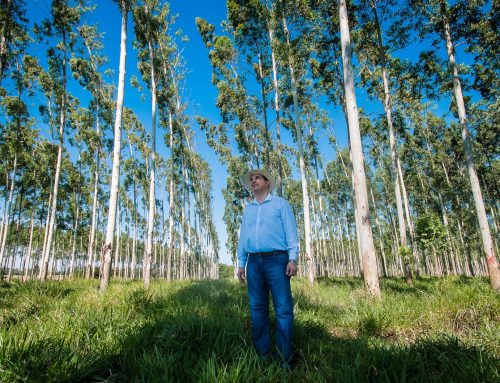Value Beyond Value Chains: Guidance Note for the Private Sector (Version 1.0)
The long-term future of agricultural commodities depends on our ability to transform the system before it is too late. Global systemic risks such as climate change, land degradation, biodiversity loss and water shortages threaten the future of food-producing regions and raise concerns about the viability of farming for millions of smallholder farmers.
But despite attempts over the last decade by large agricultural producers and buyers to tackle these issues, progress is still slow. While some companies have managed to significantly improve the sustainability performance of their own supply chains, generating a positive impact on sustainable production practices on the ground, a two tier system has been created where there are ‘islands’ of good practice, while a ‘business as usual’ approach continues at a lower level for the rest. Companies – and governments – struggle to work out what they should do. Now, new guidance from UNDP and the Good Growth Partnership offers a way forward.

There is an increasing recognition that building a sustainable agricultural system requires the transformation of entire sectors, not just individual supply chains and farms. Leading companies around the world are starting to look for approaches that can strengthen the enabling conditions for sustainable production across entire regions.
Value Beyond Value Chains is our approach to this problem, an initiative looking to increase the effectiveness of private sector collaboration with national governments in developing countries. VBV aims to help build the enabling conditions for the sustainable production of major agricultural commodity crops which drive deforestation. Guided by the programme’s DNA, Multi-Stakeholder Collaboration for Systemic Change, Value Beyond Value Chains works to strengthen the collaboration between governments, civil society and the private sector to unlock the potential of a shared vision and agenda for action.
Companies are increasingly aware that there is no ‘single’ solution for sustainable production and sourcing: interventions are required at multiple levels. But how can they engage better in multi-stakeholder collaboration for sustainable agricultural production?
The Value Beyond Value Chains initiative has just launched a Guidance Note for the Private Sector, which explains the rationale for companies to act beyond their value chains to help create the enabling conditions for sustainable production, specifically by supporting multi-stakeholder initiatives at landscape, subnational and national level in producer countries. The guidance, which is presented in this first version for consultation and development, has been produced with major producers and buyers in mind to guide company decision-making towards a deeper alignment with governments and civil society around a positive common agenda.
‘Cargill remains optimistic about the ability of the world to feed a growing population; but we agree that the food and agriculture system must continue to evolve to ensure a healthy diet within planetary boundaries. We must draw on the power of a diverse set of partners – customers, farmers, industry, NGOs, governments – to create, identify and scale solutions in the food system. We welcome the insights in this report from UNDP Green Commodities and the Good Growth Partnership on the vital role of effective public-private sector collaboration to build the enabling environment for sustainable agricultural development.’, says Nick Martell-Bundock, Senior Director of Sustainable Development at Cargill.
The Guidance Note includes a new tool, the Corporate Action Matrix, which enables companies to identify their current level of collaboration with other stakeholders, and then to plan what further steps to take to improve their linkages with the system around them.
Over the coming months, we will be developing this Guidance Note Version 1.0 by consulting with partners and hosting a series of webinars and workshops. These will be online through the Green Commodities Community and at relevant international conferences such as the Responsible Business Summit in London to gather feedback and suggestions on this draft. The Value Beyond Value Chains team will also arrange workshops in key private sector buyers and traders to test the effectiveness of the Corporate Action Matrix and other recommendations.
The final version, which will incorporate comprehensive feedback from a variety of partners, is expected to launch at the end of this year.






